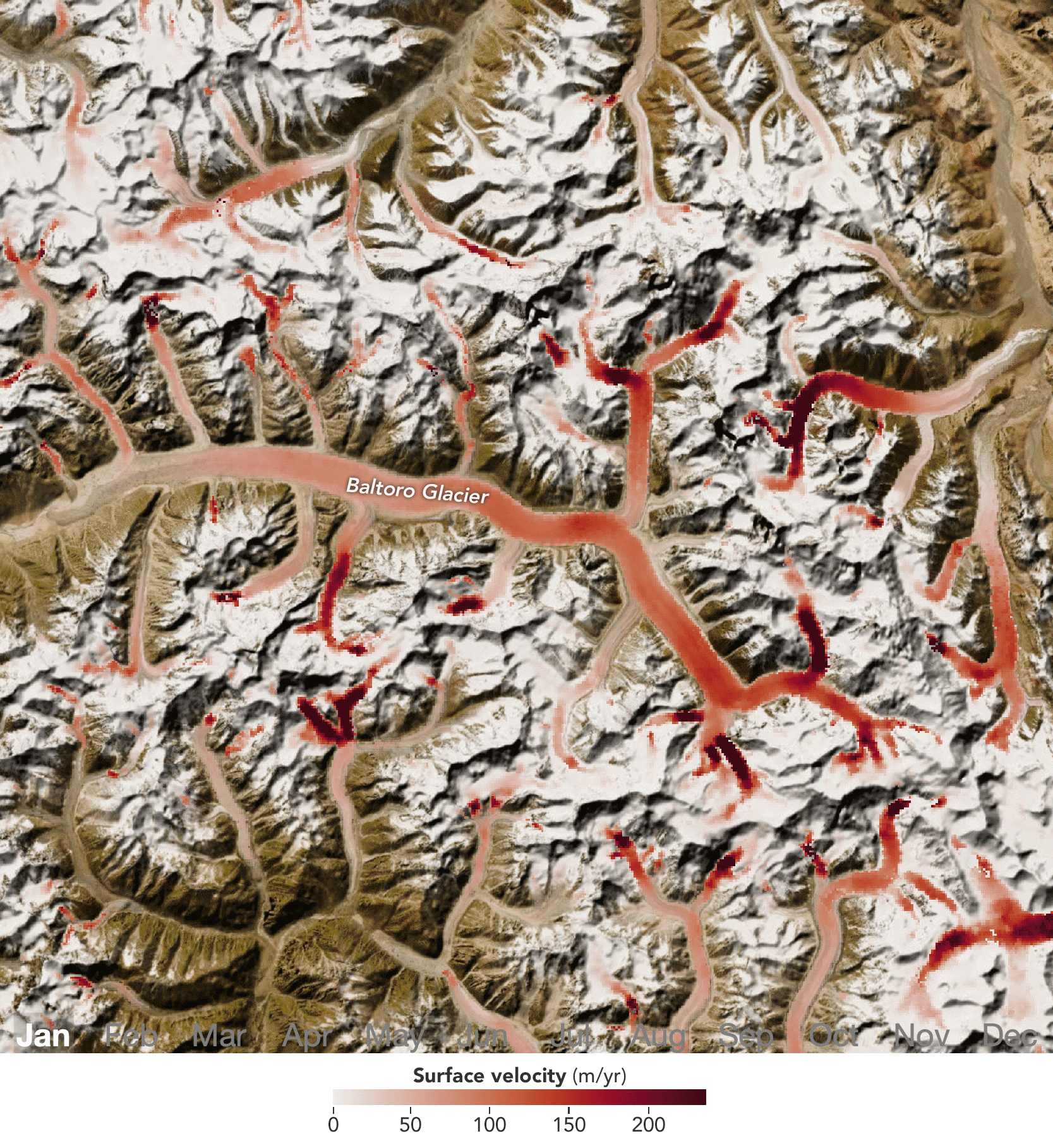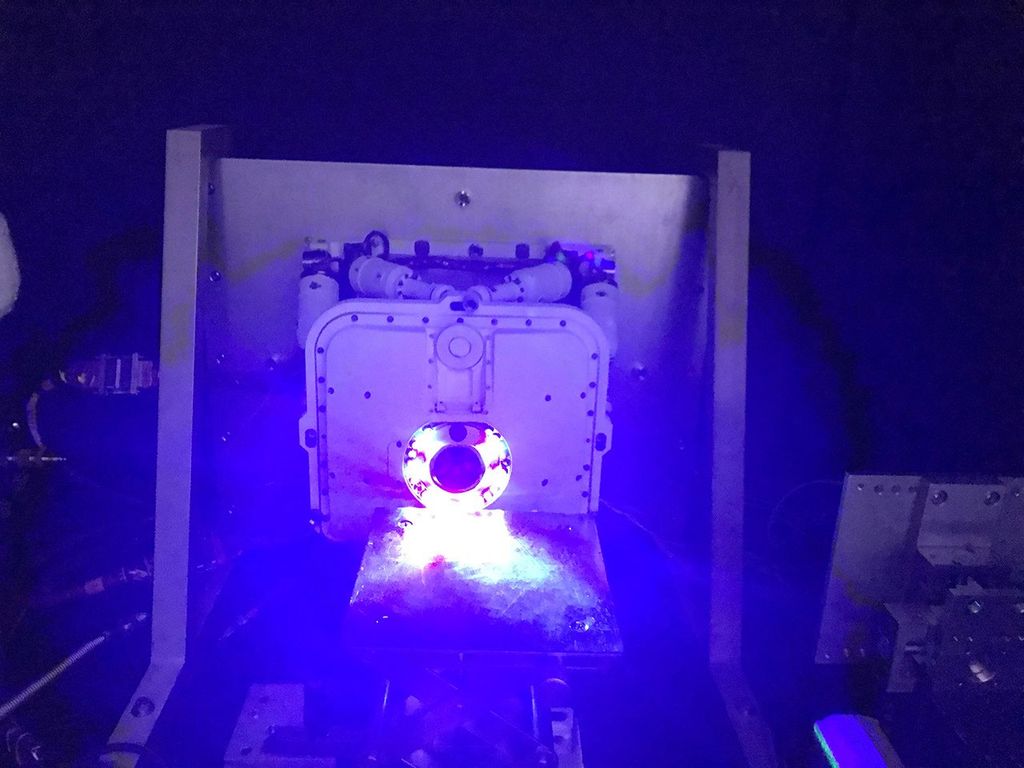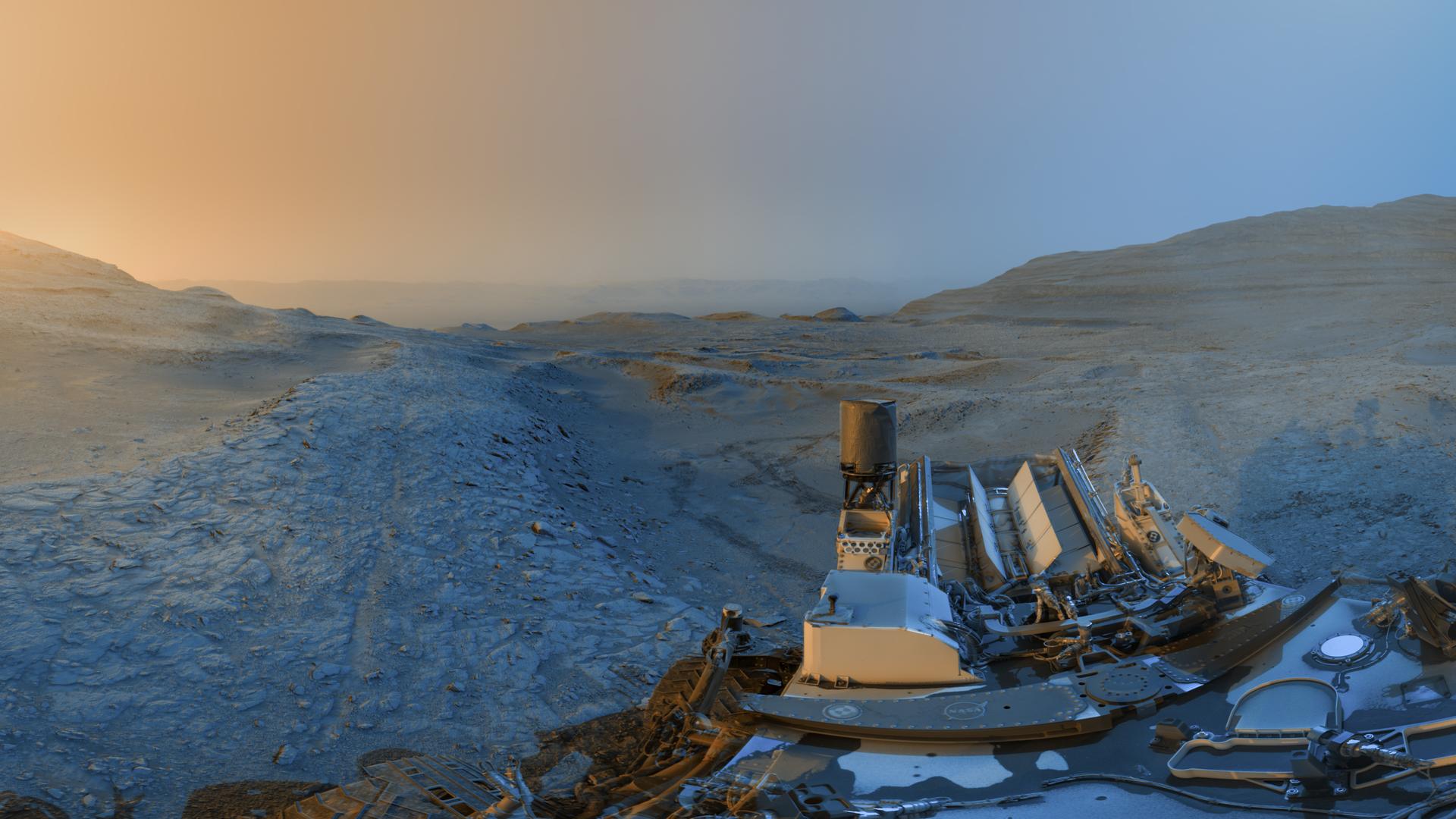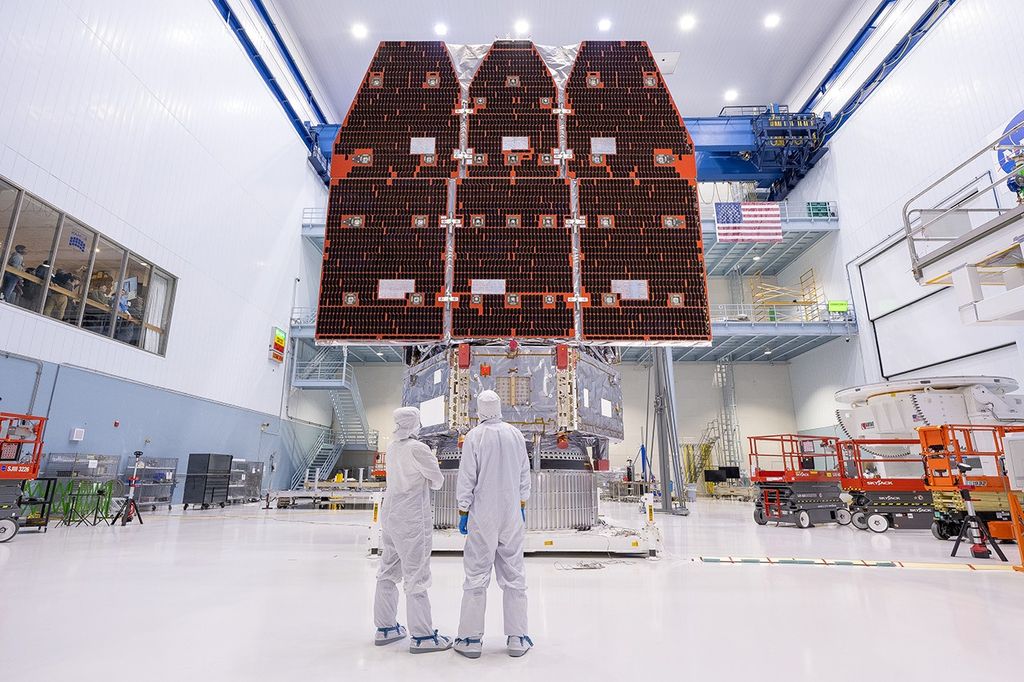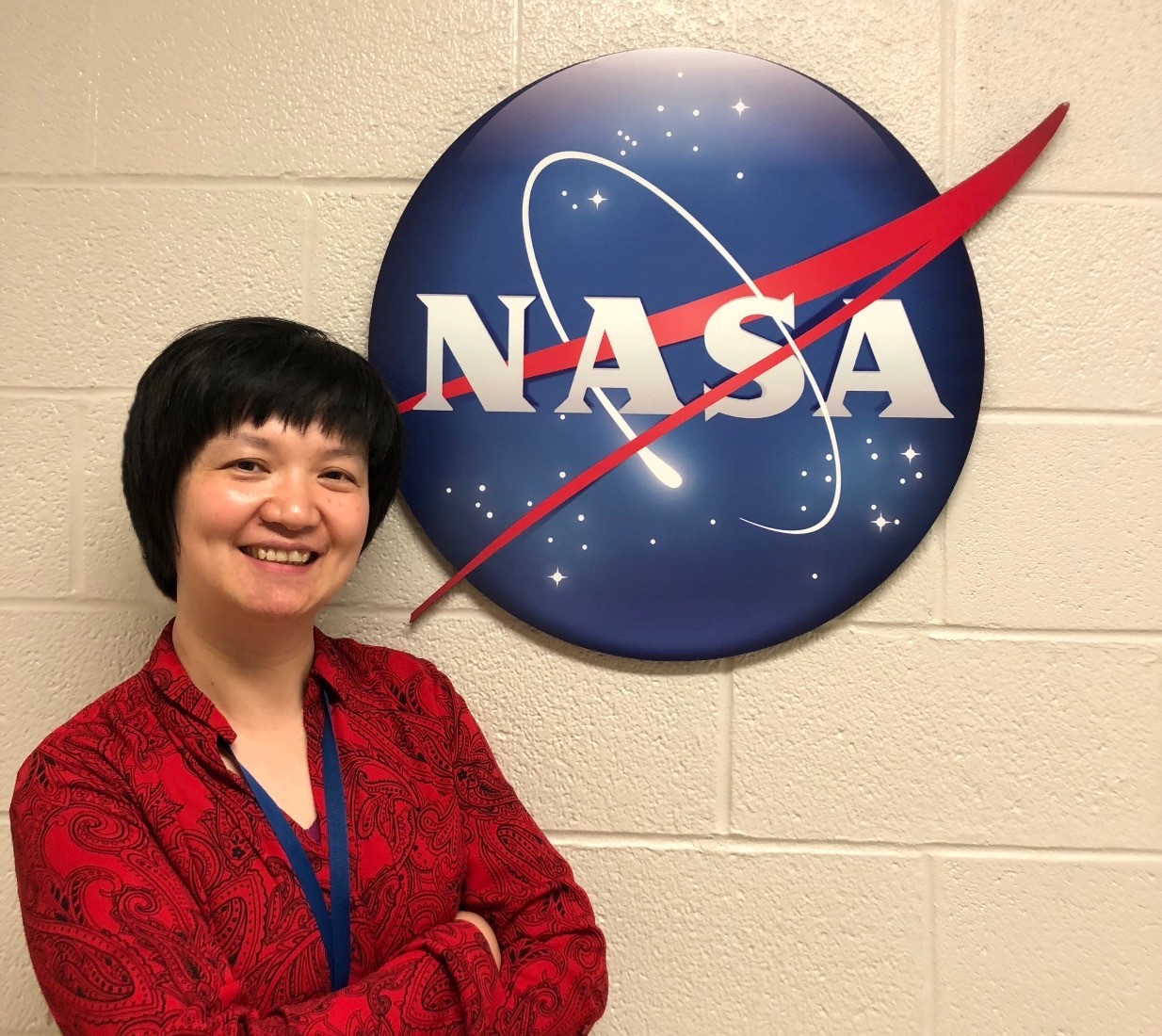Name: Frances Cheney
Title: Dynamic Object Oriented Requirements System (DOORS) Requirements and Verification Manager
Formal Job Classification: Computer engineer
Organization: Science Data Processing Branch, Engineering and Technology Directorate, Code 587
What do you do and what is most interesting about your role here at Goddard? How do you help support Goddard’s mission?
I am the DOORS (Dynamic Object Oriented Requirements System) requirements and verification manager for PACE (Plankton, Aerosol, Cloud, ocean Ecosystem) mission. I also support the JPSS (Joint Polar Satellite System) mission requirement and verification work as a member of their DOORS team. My main responsibility is to build and manage DOORS database to process, store, handle and organize the many, many mission requirements and verifications data and information in order to support system engineering in missions.
What is your educational background?
I went to the University of Illinois at Urbana-Champaign for a bachelor’s of science in mathematics and computer science, a master’s in computer science and a master’s in business administration.
What difficulties did you face growing up deaf in China?
I was born in China. When I was 5 years old, I lost my hearing. At that time, China was not as advanced medically. I was injected with a medication that caused me to lose my hearing. I am almost profoundly deaf.
My younger sister got the same injection and she became deaf too. In China, my mother had a hard time with two young girls who were both deaf.
China had special schools for the deaf. My mother did not think the education was up to par. My mother knew that we needed to have the best of everything. She thought that even though we had lost our hearing, we had not lost any of our mental capacities, facilities or abilities. She wanted to help us to live as normal a life as possible, as close a life as possible to someone without a hearing loss.
My mother wanted us to be in school with other children who did not have a hearing loss, so we went to the regular school. We did not have an interpreter or a note taker. It was challenging, as you can imagine. Sometimes my mother asked the teacher to help us or she hired private tutors to teach us at the house. Sometimes our classmates shared their notes with us.
As we got older, my mother wanted us to be independent in our studies. I was able to graduate high school with honors. It was not easy. But we made the best of it.
After graduating high school, I wanted to go to university. In China at that time, only people without disabilities could go to university. People with disabilities could not attend university.
My mother wanted my sister and me to go to university. She gave up everything in China and moved us to Illinois to join my father, who was already in Illinois.
How did the University of Illinois change your life?
I had already learned some English in China. Once we arrived in Illinois, I began at a community college before I transferred to University of Illinois at Urbana-Champaign. I did not use interpreters at that time because I did not know sign language. I had someone who took notes for me, which helped me in some way.
The University of Illinois changed my life. They understood that I was deaf and they helped. They provided Communication Access Realtime Translation (CART) service to type out every word in all my classes. They provided anything I needed, they were so supportive. I felt like my eyes were open and I was finally able to understand, that I was a part of class discussions. I felt comfortable. I felt rejuvenated. That is what drove me to get the three degrees that I got, two with top 3% honors. I thought about visiting other schools for my masters, but I realized that no other place would provide the resources that they did. I really appreciate and am grateful for the opportunity, the help and the support they gave me.
How did you come to Goddard?
While I was at the University of Illinois, I had summer internships at a few private companies. I was offered a position in a Fortune 500 corporation. At the same time, Dan Krieger, who was then in charge of internships, asked me if I wanted to work at Goddard. My mother wanted me to stay on the East Coast. I came to Goddard for a summer internship and eventually became a permanent employee upon graduation.
Why did you become a requirements and verification manager?
I built and managed software and databases for various missions and projects. Some of the projects I have worked on include Global Precipitation Measurement mission (GPM), Lunar Reconnaissance Orbiter (LRO), and Magnetospheric Multiscale mission (MMS).
About six years ago, my supervisor asked if I was interested in learning to use a new, complicated software tool called DOORS. He thought it would be a good opportunity for me. I fell in love with it. I began working with requirements and became a DOORS requirements and verification manager.
From design to launch, each project life cycle has different phases and certain milestones. At different levels of this process, there are different requirements.
Requirements are a group of tasks or conditions that must be completed to finish the project successfully. There are the program requirements, the environmental requirements, the ground requirements, the spacecraft requirements, and the instrument requirements among other possibilities. For example, if they are making a specific instrument, they have to know the weight of the instrument and the temperatures the instrument can withstand. They have to identify requirements and ensure these requirements can be met.
Any given project can have thousands or even millions of requirements. Different teams work on all of these. My work helps teams plan, manage, organize, keep track of, analyze and communicate changes in requirements and verification throughout the product development.
Are you very organized?
Yes, I think so. I do like things in their place. It’s OK if there is a little bit of a mess.
Who at Goddard has been your champion?
Everyone. I want to thank everyone who has helped me throughout my career, including patient supervisors and team members. Everyone at Goddard has been very supportive. I feel lucky to be here.
I also want to thank the interpreters at Goddard. They are very supportive.
Who inspires you?
My mother is my biggest inspiration. She gave my sister and me both such opportunities; she never gave up on us. My mother sacrificed a lot for us, leaving a good job in China to bring us to a foreign country and start all over. She had to learn the culture, find a job and make new friends. It was hard for her and she did it all for us. My mother has always supported us, she has always been there for both of us. There are not enough words to express my thanks. Without her, my sister and I would not be as successful as we are. She is also a wonderful grandmother to my two children. She is my role model and I strive to be like her.
My sister Sophia went to a different university, became an accountant, got an internship at NASA Headquarters and then went to Goddard. She met Dan Krieger and he figured out that we are sisters. She has since left Goddard to pursue other dreams. My mother is very proud that her two girls ended up working at NASA Goddard together for a time. We all live in the area now.
My sister always understood what we are going through. She loves learning new things, exploring new challenges. She finds all kinds of applications to support the deaf. Whatever she learns, she shares with me. We support each other. I am very thankful for her too.
What else are you thankful for?
I am thankful I get to work at Goddard. I feel very proud to work at Goddard. I am proud to be a citizen of the United States. I am very thankful and grateful to this country.
What is your involvement with Goddard’s advisory committees?
I participate in the deaf community meetings, which includes all the deaf people working at Goddard. I also participated in some of the Asian American Advisory Committee’s events before the pandemic.
Is there something surprising about your hobbies outside of work that people do not generally know?
I love baking. My husband is a great cook. My two young children love homemade food. They love my deserts and treats and that makes me so proud. I love making tiramisu and my kids love cheesecake and apple pie. My children help me by licking the bowl and tasting.
What lessons would you pass on to another deaf person?
I would encourage them to work hard and never give up. To never lose hope, because if they work hard and if they believe in themselves, they can be very successful. If I did not work hard, I would not have the success I have had. You have to be independent and motivate yourself to do your best.
I generally use Communication Access Realtime Translation (CART) to communicate because I never really learned sign language. My sister encouraged me to learn sign language, to have two-way communication. Over the years, my sister and a few deaf friends taught me some sign language. Goddard provides both CART and sign language interpreters.
What is your “six-word memoir”? A six-word memoir describes something in just six words.
Make a plan before you start.
If you could meet and talk to anybody, living or dead, who would it be and what’s the first thing you would ask them?
I would like to talk to President Franklin Roosevelt because he led the United States through the Great Depression, which is similar to today. I would like to ask him what advice he would offer us now.
If time travel were possible, when and where would you visit, and why?
I would go 100 years into the future, to the next century. I would like to see where my family line goes, what they are doing and what happened to us. I would like to know what is going to become of us. I think of a quote from Charles Dickens’ “A Tale of Two Cities”: “It was the best of times, it was the worst of times.” It seems very fitting now. We enjoy technology like artificial intelligence systems. We are learning about the Earth, the ocean, the Moon, Mars, and other planets. Maybe 100 years in the future life will be better, or maybe worse. I would like to know. I hope things will be better.
By Elizabeth M. Jarrell
NASA’s Goddard Space Flight Center

